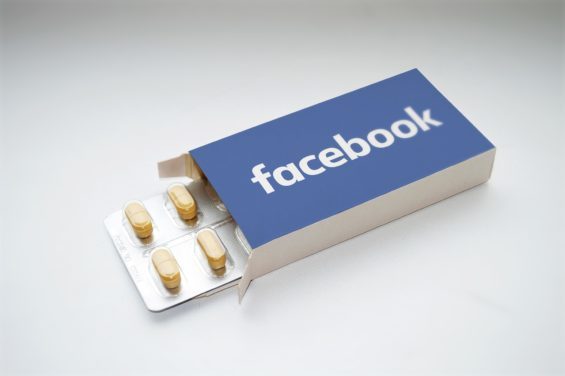
You use too much social media; you know you do. The chances are you are reading this following a link you found in a social network. Even if that’s not the case, you are probably reading this on a mobile device, where before long you’ll receive a notification telling you that one of your friends has just posted a picture of their lunch. On average, we are all spending around 12 hours a week on social networks. In your lifetime that will be the equivalent of almost six years – about twice as much time as you spend eating. Social media activity is big. Really big.
And it might not be good for you.
There is increasing evidence that social media usage is linked to a range of psychological issues.
For instance, people who are already suffering from depression (even if it is undiagnosed) tend to get more depressed as a result of using social media. Far from making them feel included in a social world, which usually helps reduce depression, online social activity appears to exacerbate the condition.
There is even some evidence which suggests that some activities on social media can lead to post-traumatic stress (PTSD). And recently, the Children’s Commissioner in England reported that social media is psychologically harmful to children.
In spite of the vast benefits of social media, there are some significant issues. These include:
- Stress
- Anxiety
- Depression
- Post-traumatic stress
- Bullying
- Cyberloafing
For some people, social media usage can become an obsession and the issue of the “fear of missing out” (FOMO) means that many people are constantly going back to social media to check “just in case” someone has said something important.
The fact is, frankly, the vast majority of social media content is inane drivel. Someone has just visited a coffee shop. Someone else has just taken a picture of a lovely view. Another person has published a blog post. Yadda yadda yadda.
And here’s a fact I know about you. Your life before the existence of social media was fruitful and enjoyable, and you had plenty of time for hobbies, being with friends and doing what you liked. Social media has almost certainly, for most people, not added to their life in any dramatic way. Indeed, for millions of people, it has been harmful. For most people, it is draining.
Social media is a public health issue now
Given that there are so many potentially negative psychological consequences of using social media, it is no surprise that the Royal Society for Public Health has taken up the issue. They are promoting the notion of “Scroll Free September” during which they are encouraging people to give up using social media for just 30 days. According to the organisation’s website: “A good relationship is one of balance, and Scroll Free September is here to help you gain that with social media both on and offline.”
The Huffington Post is backing a similar campaign, asking people to give up social media for 28 days.
Ultimately, giving up doesn’t help – even though the campaigns do highlight the issue. If you give up something, you want it all the more. Ask anyone who has given up smoking or alcohol. When you give up something, you continually focusing on what is missing. That’s why dieting doesn’t work because people concentrate on what to take away, instead of thinking about what to add (such as fresh fruit and vegetables which would make you feel more full and replace the stodge).
If you give up social media, the chances are it will work like dieting. You always focus on what is missing and then you “binge” once the 30 days are over. It will be “yo-yo” social media activity, with people giving up and then consuming even more of it after a period of abstinence.
Make social media a routine
One of the reasons why people regularly check social media is because their unconscious brain is never sure of when it will get its next “fix”. So, whenever there is an opportunity, it prompts you to “take a quick look, just in case”.
The same would be true for other things. For instance, let’s imagine you never cleaned your teeth at the same point of the day, in a routine. Your brain would know you ought to have cleaned them but would prompt you to have a “quick brush” just in case there wasn’t an opportunity later in the day.
However, with a routine, your brain knows it can stop concerning itself with teeth brushing because it is aware it happens at pretty much the same time every day.
The same is true with dogs, for instance. They don’t mess in your house because their body has got used to the routine. You take them out for a walk at 7am and they “perform to order”. It’s a biological routine which you helped establish.
When we have routines, we can carry on with everything else without having to concern ourselves with the activities that routinely occur.
Here’s the problem with social media. For most people, there is no routine. So their brain keeps nudging them – “go on, take a look”, “you’d better check now you might not get a chance later” and so on.
The solution to many of the issues with social media is to establish a routine. It doesn’t matter what your routine is – 8am each day or 9pm each night, or whenever works best for you. But if you set a routine and stick with it, your usage of social media will not only become more efficient, but more enjoyable too. That’s because you will not be distracted by a bunch of inane drivel, but you will focus on the social messages most important to you for the little “window of time” you have created in your routine.
Social media is taking over your life because you haven’t set a routine. That means the social networks and the social media posts are in charge of your life, instead of you.

